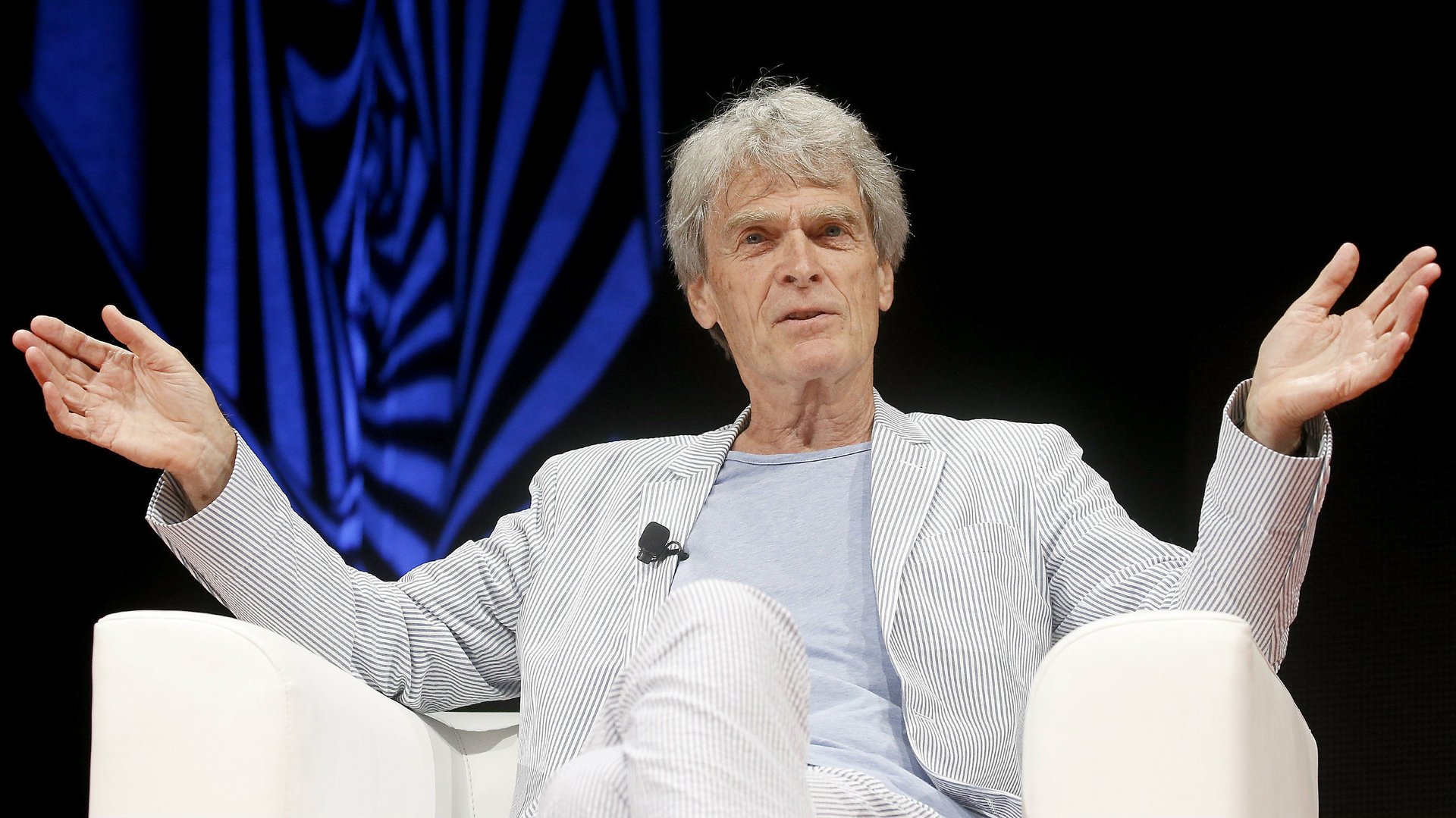A legendary ad man’s simple advice on breaking out of a creative rut
Cannes, France


Cannes, France
Sir John Hegarty has won just about every award the ad world has to offer, and was knighted in 2007 for his services to the advertising and creative industries. At the Cannes Lions ad conference this week—officially, the International Festival of Creativity—he has been holding court among the thousands of marketing execs, creative directors, tech bigwigs, and assorted celebrities who flocked to the French Riviera for their annual gathering.
Hegarty was a founding shareholder of Saatchi & Saatchi in 1970, and later went on to found Bartle Bogle Hegarty. Over the years, he has worked on some of the most iconic campaigns for the biggest brands, Audi, Levi’s, and Johnnie Walker among them.
Around town this week, he has been championing the deep, emotional resonance generated by the best ad campaigns, and belittling overwrought ads that are produced by committee, driven by data, and otherwise isolated from pure human inspiration. “Our industry has forgotten about persuasion, and has become obsessed with promotion,” he said at a session on a hotel rooftop overlooking the yacht-laden port of Cannes.
On the sidelines of the conference, I asked him about how he breaks out of a creative rut—even he has surely had a few, and may have some clever or sophisticated way to unblock things when he gets stuck. In fact, his advice is refreshingly simple.
“Go for a walk,” he said. “I do my best thinking when I’m not thinking.” He continued:
“Looking at a screen will never unblock your creativity. What I always say to creative people is, unplug the computer and have a conversation with somebody. Talk to them. You may find that they did something last night that’s really interesting—you might be able to use that.
Get out there. Just walk it off.
When you see somebody with their feet up on a desk looking out of the window, people think, ‘What are they doing? Why aren’t they working?’ They are working.”